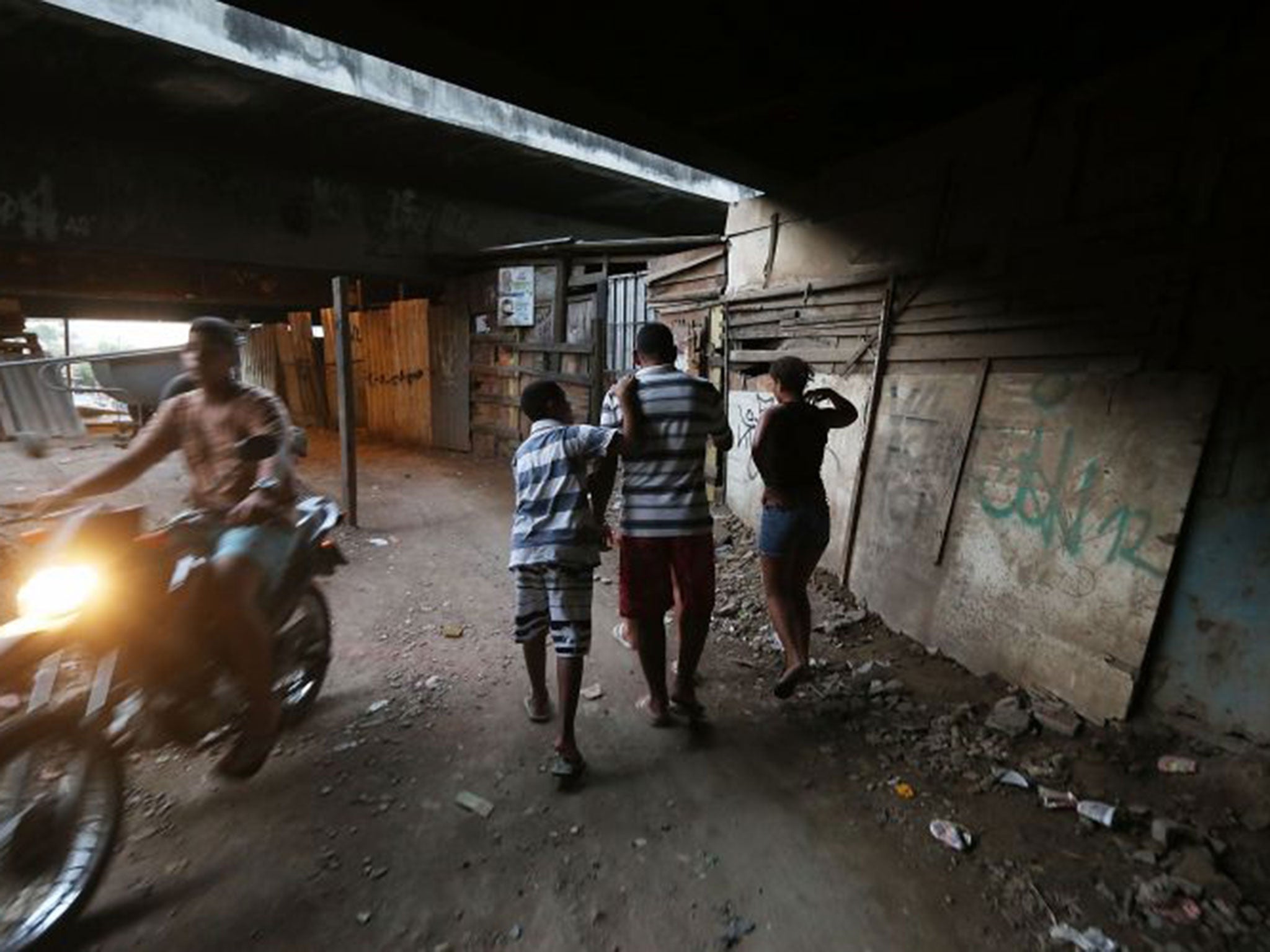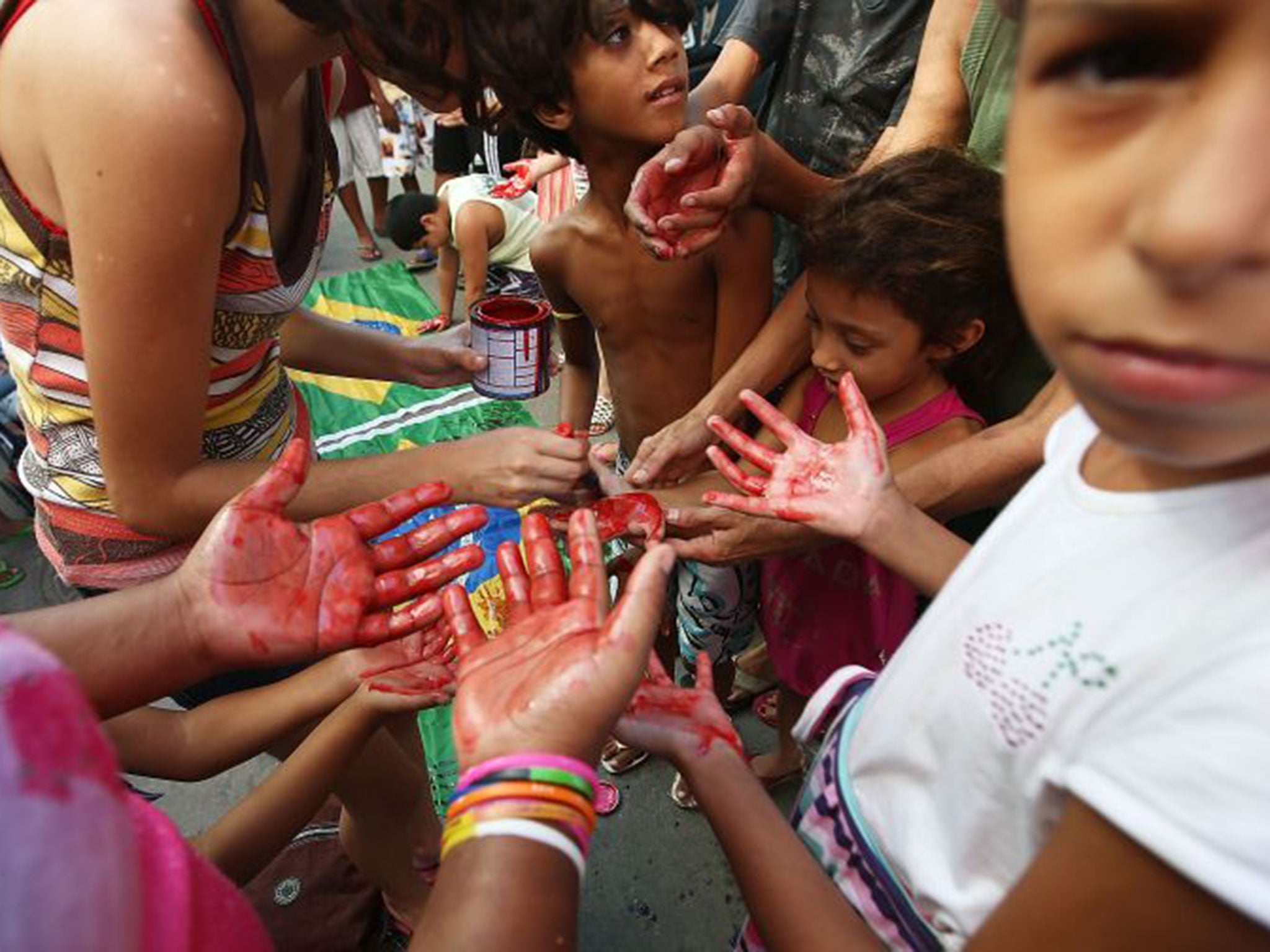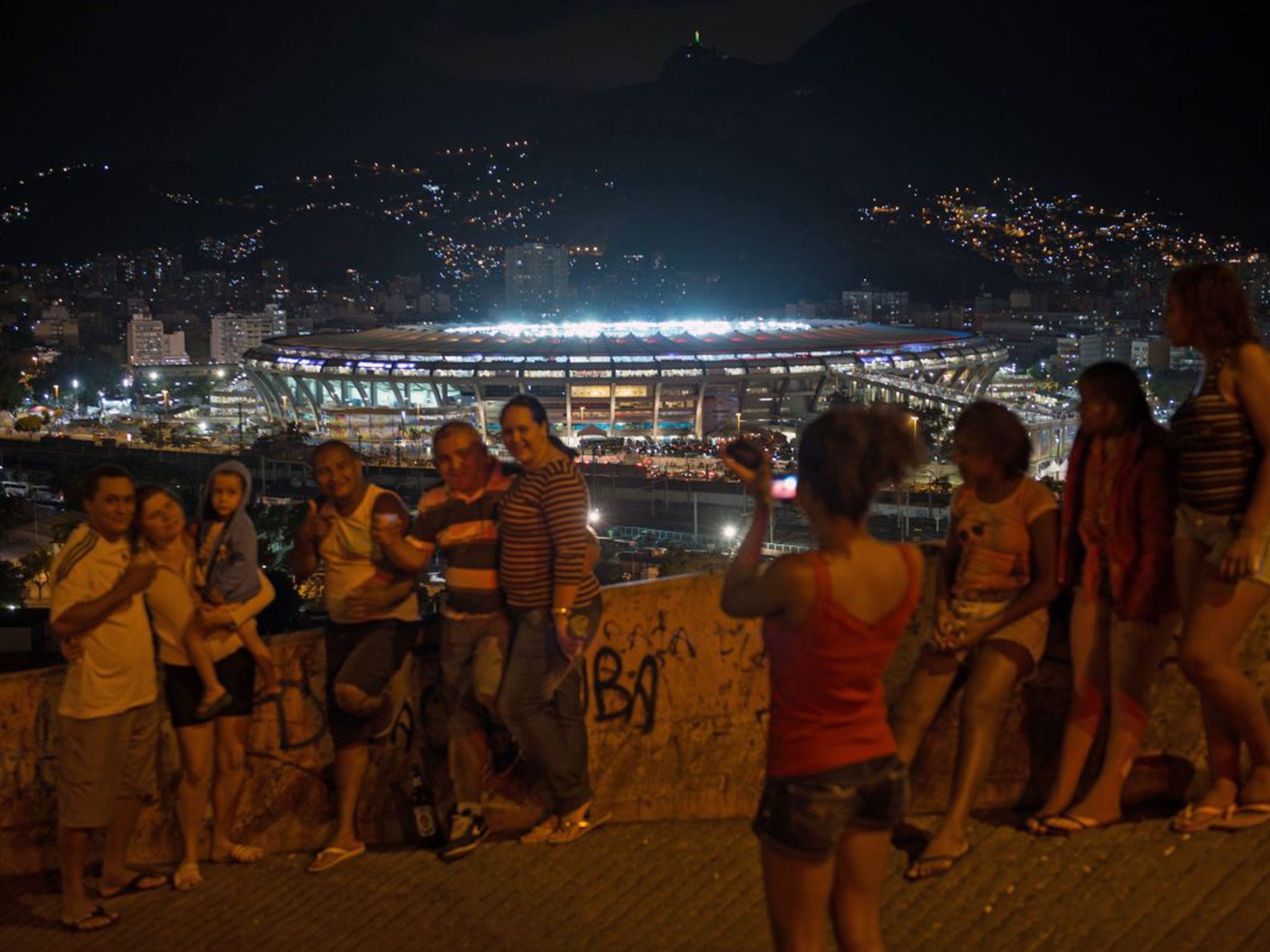Music and elections take on the violence of Rio de Janeiro's drug gangs
After the gunning down of a community leader, Donna Bowater reports on fear in the favelas and the hope for peace

In Rio de Janeiro, postcards are sent from zona sul, or south zone: sunkissed Copacabana beach, the girls from Ipanema, the high-rise seafront set against unparalleled natural beauty. On the other side of the city but a world away is the hilltop shanty community of Timbau in the sprawling Maré favela complex.
This is one of the most violent parts of the city, so troubled that the military have occupied it since April. Two weeks ago, two gunmen walked into Timbau Residents' Association's headquarters and shot a community leader seven times at close range. Osmar Paiva Camelo, the president of the association and a retired military policeman, is believed to have been killed for his support of a police operation to seize back control of Maré's streets from drug gangs.
That process had been ramped up before the World Cup to ensure security across the city, with the installation of Police Pacifiying Units (UPP) in some 40 favelas. In an interview with community website, Rio On Watch, a week before his death, Mr Camelo said the violence in Maré had been so bad, he had considered leaving after living in the community for 40 years.
But after seeing that the PPU promised to bring peace, he said he would stay. "Violence is what makes people leave Maré. But now, we have an outlook of peace in Maré. So the people who are born in Maré, who live in Maré, think it is better to stay here."
In the residents' association office, on the wall beside a collection of Brazilian poetry, are three bullet marks. "There was one other person here, who was hit by a bullet in the leg," said Ricardo Ferreira Mirapalheta, who runs the Instituto Staumbor music project for children from the same building in Timbau. "I worked alongside Osmar for 10 years. He supported the government's pacification process. I don't know if it was for this that he was killed."

Mr Mirapalheta said there was fear and suspense in the communities before the federal and state elections in October: "It's complicated to talk about what is peace and what is pacification. When the army arrived, there was a lot of expectation." .
Maré, though one of the most troubled favelas, is not the only community experiencing violence. After fights between rival gangs on the hillside, this month the police presence has been reinforced in Mangueira, a favela that overlooks the Maracanã stadium, where the World Cup Final took place in July. Eye witnesses said members of the Pure Third Command entered the favela and started fighting with the Red Command, spraying their graffiti tags on houses. Last week, the Federal Police seized £885,000 in an anti-drug trafficking operation.
Also last week, in Complexo do Alemão, one of the biggest favelas, officers from the Special Operations Battalion were deployed after intense shooting broke out.
Earlier this year, it was reported that violence in Rio's favelas had returned to similar levels as before the UPP programme was rolled out. Figures from the Institute of Public Security (ISP) showed 1,459 murders in the first quarter of 2014 compared with 1,562 in 2008, when the pacification progress began.
In Maré, the shooting of Mr Camelo suspended the activities of the residents' association, leaving only Mr Mirapalheta's music project still running. Since the army occupation, the community has become more tense. Fewer people venture outside, and the streets that were once filled with the noise of mototaxis, shouting and music are hushed expectantly.

The 2,700 troops currently posted on almost every street corner throughout the community are likely to stay until the end of the year. "I'm not afraid here," insisted Mr Mirapalheta, who leads 50 children from the community in an orchestra. "It's a question of my principles. I'm focused on a cultural project."
As next month's elections approach, residents hope that some stability can be restored to the favelas, as some candidates promise to strengthen the pacification programme. In Maré, Mr Camelo's widow is expected to organise a new election for his residents' association post. The suspension of the community group has left many at a loss.
"The murder of Osmar took from the daily life of Maré one of its most active leaders," said the directors of community network Redes da Maré. "A resident of Maré for more than 40 years, Osmar believed that life could be different in Maré by overcoming the many forms of violence that came to characterise much of what was presented there."
José Mariano Beltrame, Security Secretary in Rio, said: "The situation in these places is much better than before, even in the most problematic areas. We are sure of our work. We never had the illusion that the traffickers would give up easily, but we continue our battle."
Join our commenting forum
Join thought-provoking conversations, follow other Independent readers and see their replies
Comments